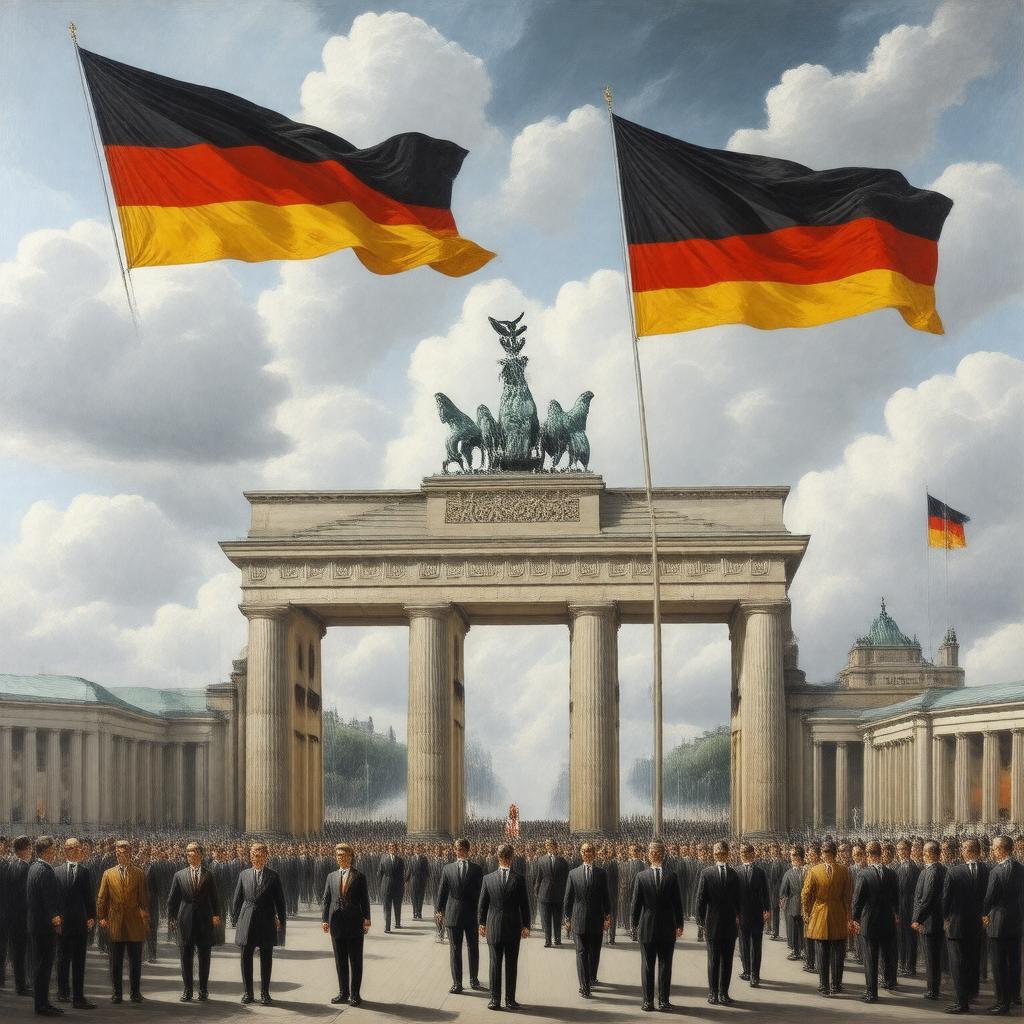Prompt
"Create an image depicting a symbolic scene of the German reunification, showcasing the unity of East and West Germany on October 3, 1990, with a background of the German flag, possibly with the Brandenburg Gate or Berlin's skyline, in a style that conveys hope, celebration, and historical significance."

